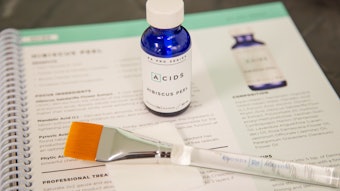
A new study published in Dermatologic Surgery suggests that Euphorbia peplus—also known as petty splurge in the U.K. or radium weed in Australia—may improve photoaged skin.
According to Pubchem.com, ingenol mebutate, a small-molecule activator of protein kinase C (PKC) is isolated from the Euphorbia peplus plant and its sap has been used as a traditional treatment for superficial skin cancers such as solar keratosis (actinic keratosis).
In the study, ingenol mebutate (Picato) gel was applied to the skin of 25 subjects for three days in areas with known actinic keratosis. Subjects then self-evaluated and were expertly evaluated for six characteristics at Days 7, 30 and 60 using an objective scale. The characteristics examined included the actinic keratosis, overall skin appearance, wrinkling, dyschromia, erythema and texture.
Twenty-two subjects completed the study and demonstrated statistically significant improvements in all characteristics by Day 60 (p < 0.05). The authors therefore concluded 0.015% topical ingenol mebutate gel produced cosmetic improvements in photoaged skin within 60 days of application.
This demonstrated efficacy is likely due to the activation of the PKC family of enzymes, which regulate cell processes including proliferation, differentiation and apoptosis. This is yet another example of traditional medicine found in nature being backed by modern science—with future dermocosmetic skin care applications.










